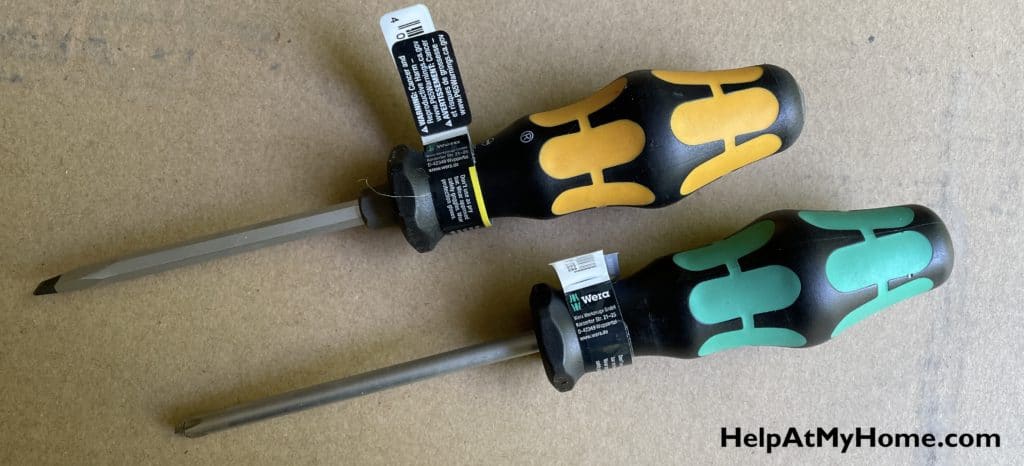Back in the day I never thought about screwdrivers as being any more than a simple tool that I had been given secondhand. If I had to associate a brand with them, I would have said Stanley, but then basically run out of ideas. Today, in 2024, things are very different and any number of brands are available to us via the internet.
In case you aren’t familiar with them, Wera is a company that has been making tools in Germany since 1936. They are known for their high quality, professional-approved tools, particularly their screwdrivers, torque wrenches, electrical work tools, and tools for working on bicycles. Pre-internet it’s pretty rare you would have seen a Wera screwdriver in the US and, personally, I hadn’t seen one until maybe 4 years ago.
In this article we’ll look at Wera’s screwdrivers, of which I own multiple and have been a fan of since the first time I used one.
One thing to note is that I’ll be looking at Wera’s products from the perspective of a homeowner and general user. Wera has many products designed for specialty jobs and professionals, with features like electrostatic discharge (ESD) prevention which I can’t really speak to.
The Famous Wera Handle
Wera is known for, and very much promotes, the distinctive handle on its screwdrivers. This design, which they call “Kraftform” not only is found in the logo of the company, but it appears in most of its products in some fashion. The handles have hard and soft zones for grip as well as wider areas in the middle which are comfortable and ergonomic to hold.
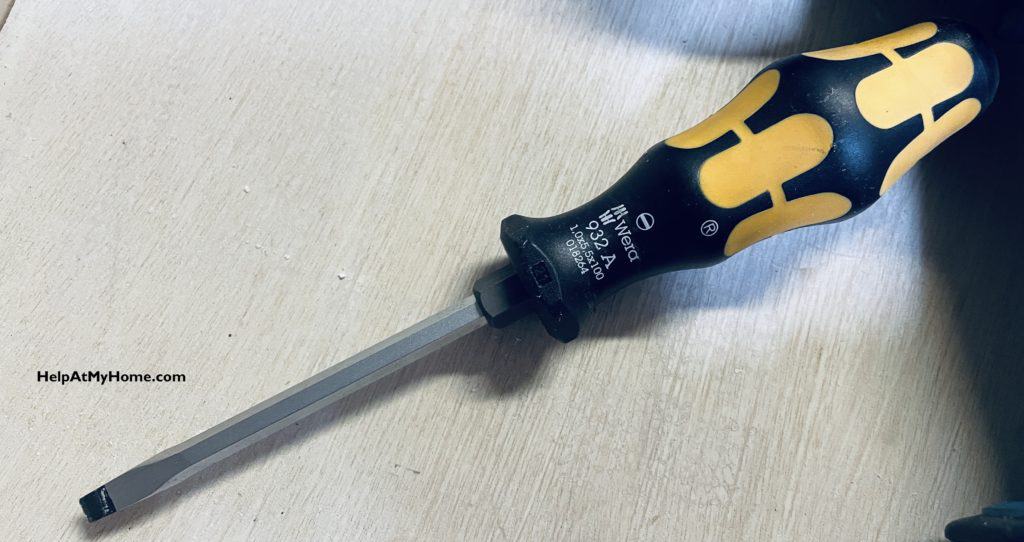
The handle is roughly hexagonal so it doesn’t tend to roll on flat surfaces. It’s rubbery and grippy, but not quite soft.
The handle is larger in the center so it’s comfortable in the hand, but it’s a bit potato shaped, so it’s not ideal for all circumstances, for instance when it’s wet outside.
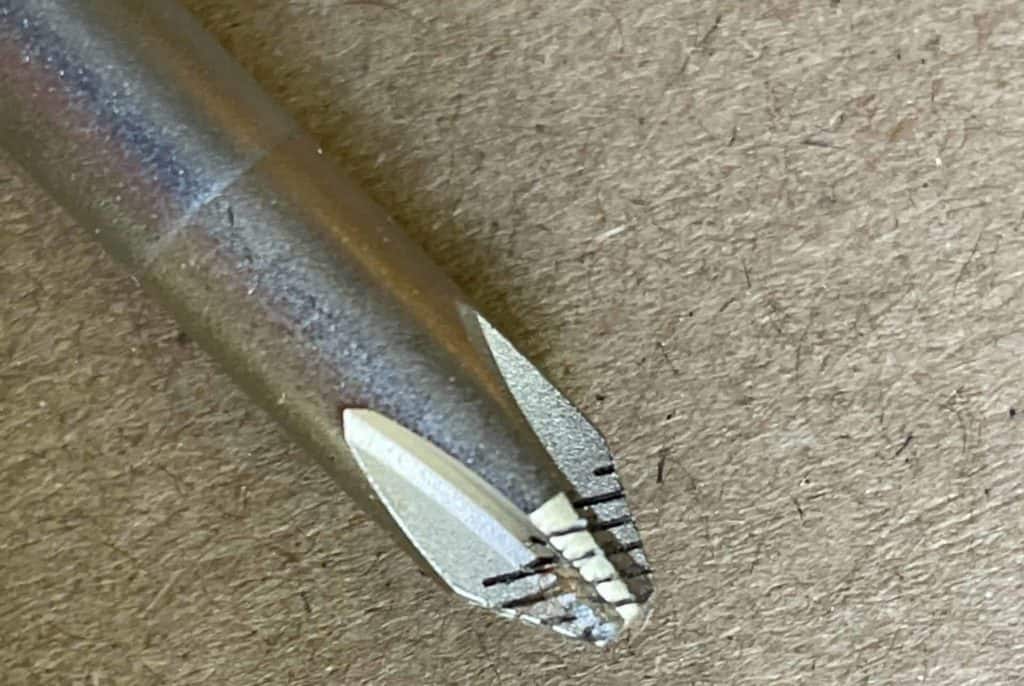
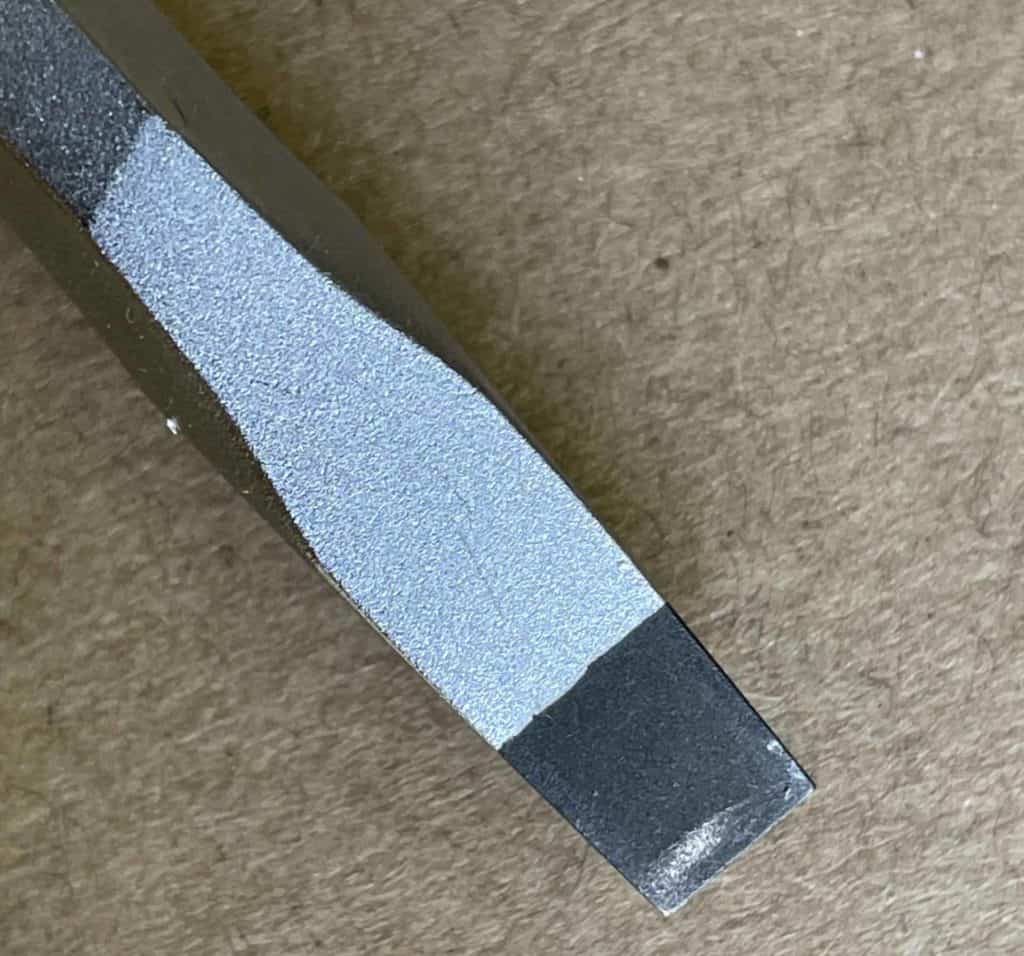
The Blade
The business end of the screwdriver is another place where Wera sets itself apart from the competition. The two most common upgrade tips you’ll see on a Wera is a laser-tip and a chisel tip. One is for precision and grip while the other is for toughness.
The laser tip Philips or JIS tip looks cool, but I’m not sure if actually does anything. The little lines are meant to add grip to the screwing, but given how little of the laser-lines are actually in contact with the screw head, I think these are more for aesthetics than anything.
The chisel tip is a hardened tip on some of the flat screw screwdrivers, and it’s suggested for when you are using the screwdriver for non-screwing purposes. While maybe people who know more about tools than I do recommended not hitting the back of your screwdriver with a hammer, we all do it, so why not have a screwdriver which is designed to take some punishment.
Most for the flat models will have a metal end piece to account for a major problem with Wera’s handles: the rubber handle isn’t tough like a hard plastic one so you need metal reinforcement all the way to the end so a hammer blow doesn’t just rip up the handle. Some models have this and others don’t. Wera calls this metal end piece the “Impact Cap” and some models have it and most do not.
Screwdriver Variety
When you are shopping for Wera screwdrivers, you’ll be knocked over by the variety on offer. Ever model will have number of variables:
- Drive type (fixed or ratchet)
- Blade thickness/width/diameter
- Blade length (aka shaft length)
- Laser engraved tip or not
- Handle type
- Handle length
- Bit holder type
- Product family (like Chiseldrive or Kraftform)
So you might end up looking for something extremely specific and finding it… or finding a lot of options that are very close to what you want but not exactly it.
My Wera Tools
Some of the tools in my Wera tool set I have…
- A set of Kraftform screwdrivers: These have a green handle and are good for general use. They are my preferred Phillips screwdrivers and have been for some time
- A few Chiseldrive screwdrivers: Tough screwdrivers for loosening tough screws. Can take a serious beating. I tend to use these for rougher work as the blade is a bit wide for most straight screwes
- One wooden handled: Philips #2 for general use. I just thought this was very classy!
- Two bitholders: One Kraftform Kompakt Stubby magazine, which is a short screwdriver with 6 bits in the handle and a Rapidator Quick-Release Chuck holder
- A bunch of Kraftform Stainless: Very good small screwdrivers for precise work
Why such a selection? Well, for all the normal reasons why we have all sorts of tools: some were given to me, some I bought especially because I wished I had them yesterday and some I picked up one sale (or when Amazon’s price algorithm was particularly kind to me).
Wera Screwdriver Review
On the whole I’ve been quite happy with Wera’s screwdrivers.
First of all, they are very comfortable. As someone who has always used those super hard plastic Craftsman and similar budget screwdrivers, having a tool that was in any way premium is something I got a kick out of. These tools look premium and feel nice in your handle. They give extra grip thanks to the textured surface, but it’s the round middle section that really saves your hands.
I really like the integrity of the drive heads on these. Most are cleaned up with a laser for extra texture and grip on the screw head, which means less stripping. On the whole I feel like I strip fewer screws with these than I do my normal set of Husky screwdrivers.
I’ve found the blades of the screwdrivers (basically the shaft) to be strong and sturdy, and I totally trust them. Some of the stainless steel models I have a bit under-built but that’s not true of the Kraftform models.
On the downsides, these screwdrivers are nice and rather expensive, so I tend to be a bit more careful with them. I don’t baby them, but when it comes to hitting a screwdriver with a hammer or torquing the heck out of one with a crescent wrench, I reach for an old screwdrivers much of the time.
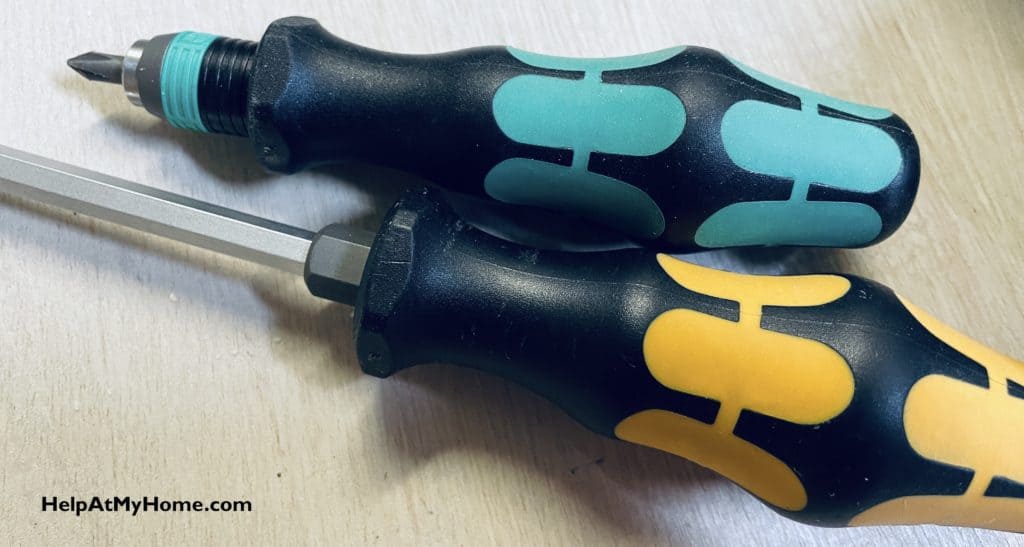
Another downside is that many of the screwdriver, particularly the Kraftform ones, are sold with ratchets. This is a useful feature, but it really drives up the price. Some models will be over $40 with the ratchet! The company also has other niches that I’ve gotten when I didn’t mean to, like non-magnetic bit holders, which I’m sure are great for specialized electronics work, but are just annoying for me.
Lastly, I’d say the handles are tough enough, but they do trade off toughness for comfort to some extent. The plastics used in the handles and the grippy sections just aren’t as strong as a super hard plastic from a Husky or Milwaukee. I’ve hit a few with the sander or dropped them from the ladder on to pavement, and they can get dinged up. None have broken yet.
Ultimately, I’ve become a big fan of Wera’s tools and while they are on the expensive side, I find that I prefer their tools and opt for them when buying something that I know I’m going to use a lot of a long period of time. I buy them because they perform better and are more comfortable to use, not necessarily because they will last longer.
Wera Warranty
Since tools are supposed to last, they should be backed by a good warranty. Wera says: “All Wera professional hand tools are covered by a lifetime warranty against breakage due to defects in materials or workmanship for the normal life of the product.“
Which sounds good to me. I haven’t broken or returned anything yet, but I’m fully expecting to be covered if I do.

